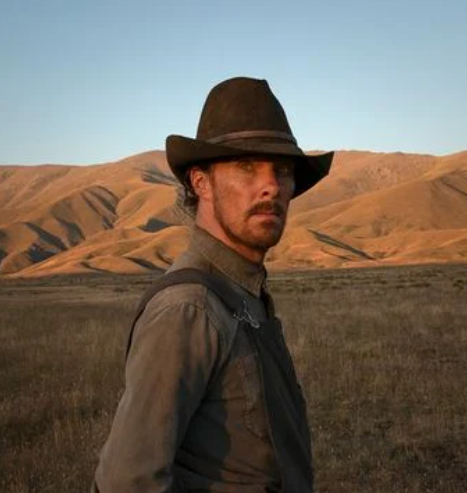‘The Power of the Dog’ has received 12 Oscar nominations this year – the most of all of the films. Including the most important one, for the Best Motion Picture of the Year.
Eponymous ‘The Power of the Dog’ symbolizes toxic masculinity. It hurts both genders – the violence inflicted on young boys disconnects them from their emotions. In Phil’s case, we clearly see that he has anger management problems. He is a bully. He bullies his brother and then his new wife and her son. He is also suppressing his homosexuality and in general his feelings. We later realize that the only person he ever loved was his mentor, Bronco Henry.
The motive of the dog is noticeable and present throughout the whole film. There is a barking dog visible at the mountain. Phil is like a dog that barks but does not bite. We do not see him physically hitting anybody except for a horse. He damages people psychologically, just like he did to Rose. Another saying that could describe him is ‘dog in the manger’ – he doesn’t want to sell hives to the Indians, he prefers to burn them. He is also obviously the dog that Peter needs to save his mother from.
The film starts with Peter’s voice: ‘I wanted nothing more than my mother’s happiness. What kind of man would I be if I did not help my mother? If I did not save her?’ So Peter’s idea of masculinity is more positive, concentrating on protection, not control. However, he is a little bit creepy, also washed out of emotion, dissecting and killing animals. It even looks like he might have had something to do with his father’s death.
Even though Phil and George are brothers, they couldn’t be more different – both physically and mentally. There is no connection between them even though they live together and even sleep in one room. ‘How nice it is not to be alone’ says George to his wife Rose. Phil is alone. He is hurt, unable to open up and to love. He is very intelligent and he is using his skills to hurt others. But that’s not who he really is deep inside. He just plays a role of the brute. Even his name, Phil, sounds like Feel.
He has learned to behave that way. Bronco Henry, himself homosexual, has thaught Phil well how to conceal his true nature behind this facade of savagery. How to disguise his gayness as homophobia. But it resulted in auto-homophobia and self-hate. And that often results in brutality against women and children, both girls and boys. These hurt men who believe themselves that emotions mean weakness, teach young men what it means to be a man. They do not know what positive masculinity is.
In the end we see that Pete is not just a victim and Phil is not just the perpetrator. They are both one and the other at the same time. It’s a vicious circle that we, as a society, need to break. With love.



